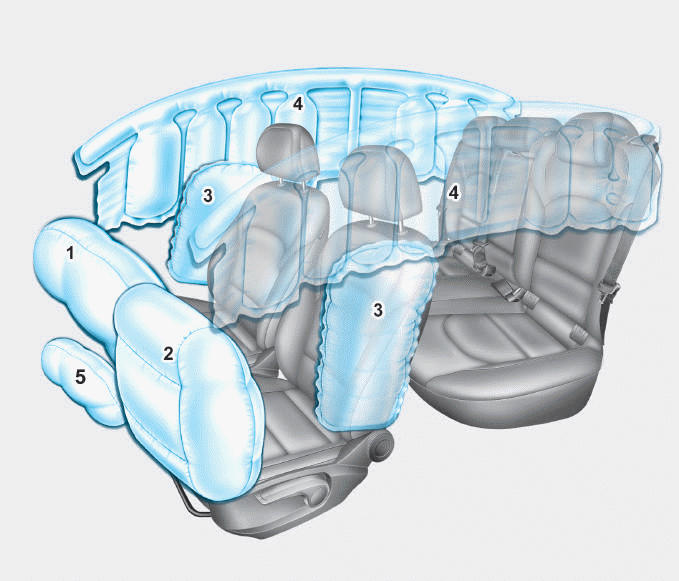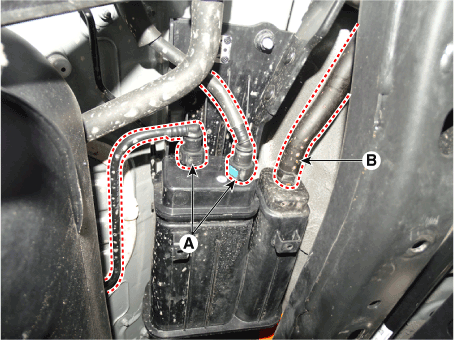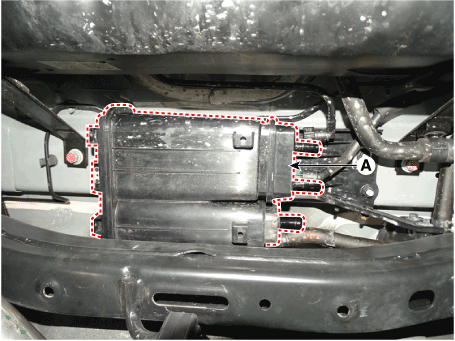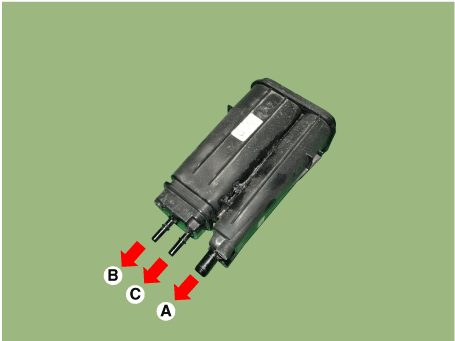Hyundai i-30: Evaporative Emission Control System / Canister
Repair procedures
| Removal |
| 1. |
Turn the ignition switch OFF and disconnect the battery (-) terminal.
|
| 2. |
Disconnect the vapor hose quick-connectors (A).
|
| 3. |
Disconnect the vent hose quick-connector (B).
|
| 4. |
Remove the canister (A).
|
| Inspection |
| 1. |
Check for the following items visually.
A : Canister ↔ Atmosphere
B : Canister ↔ Fuel Tank
C : Canister ↔ Intake Manifold
|
| Installation |
| 1. |
Install in the reverse order of removal.
|
 Schematic diagrams
Schematic diagrams
Schematic Diagram
Canister
Canister is filled with charcoal and absorbs evaporated vapor in fuel tank.
The gathered fuel vapor in canister is drawn into the intake manifold by the
ECM/PCM when appropriate conditions are set...
 Fuel Filler Cap
Fuel Filler Cap
Description and operation
Description
A ratchet tightening device on the threaded fuel filler cap reduces the chances
of incorrect installation, which would seal the fuel filler...
Other information:
Hyundai i30 (PD) 2018-2025 Service Manual: Schematic diagrams
..
Hyundai i30 (PD) 2018-2025 Service Manual: Climate Control Air Filter
Description and operation Description The climate control air filter is located in the blower unit. It eliminates foreign materials and odor. The particle filter performs a role as an odor filter as well as a conventional dust filter to ensure comfortable interior environment...
Categories
- Manuals Home
- 3rd Generation i30 Owners Manual
- 3rd Generation i30 Service Manual
- Exhaust System (DPF) Warning Light. Glow Indicator Light
- Scheduled maintenance services
- Cruise control
- New on site
- Most important about car
Air bag - supplemental restraint system

1. Driver’s front air bag
2. Passenger’s front air bag
3. Side air bag*
4. Curtain air bag*
5. Knee air bag*
6. Front passenger air bag ON/OFF
switch
Copyright © 2025 www.hi30.net



